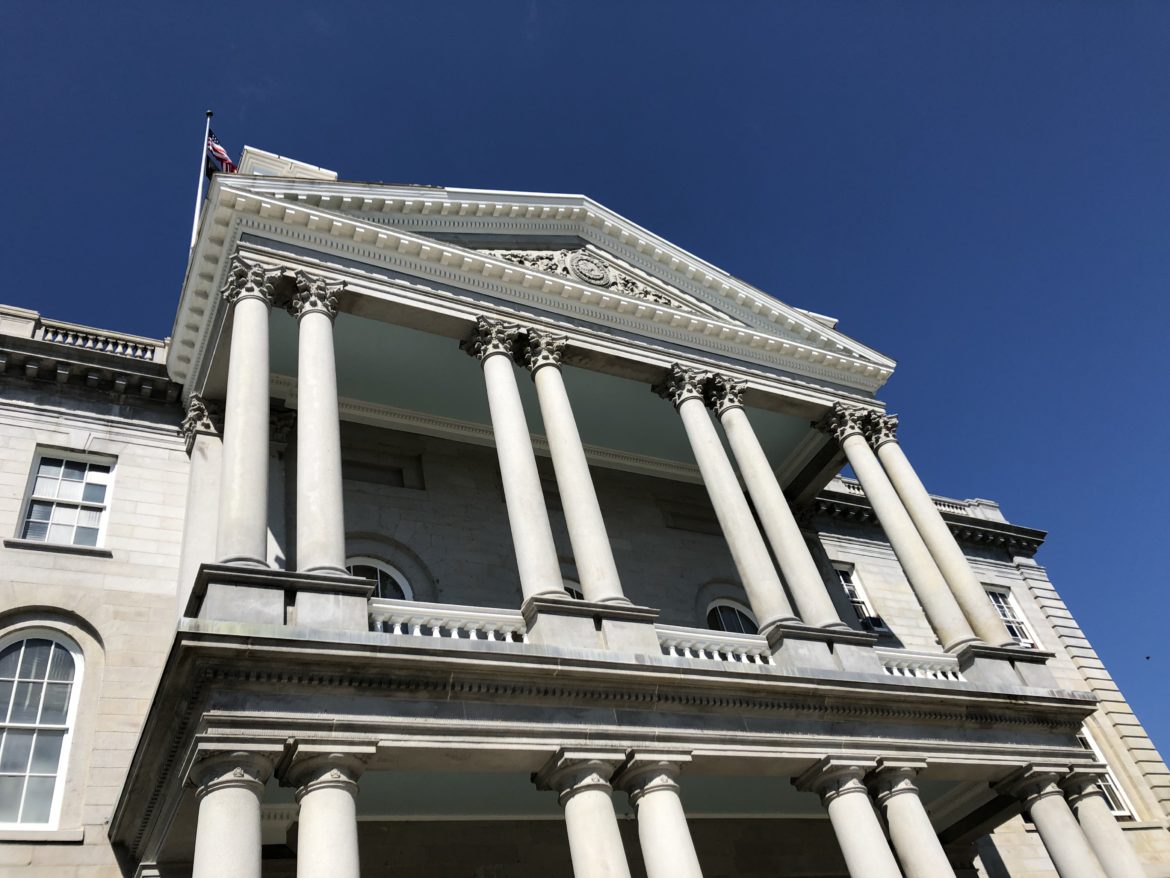By GARRY RAYNO, InDepthNH.org
CONCORD — Republican House members seek Democratic support to change the budget law passed last year to prevent a potential business tax rate increase.
The request comes three days after Republican House members said they would vote against a rule change to allow action on all remaining House bills because the deadline has passed. Without the rule change, every bill will need a two-thirds majority to pass when the House meets again next month.
A two-thirds majority would also be needed to prevent the business tax rate increases contained in the budget agreement that had bipartisan support after Gov. Chris Sununu vetoed and then reached agreement with Democratic House and Senate budget writers on a compromise.
One of Sununu’s biggest reasons for his veto of the budget passed last session with only Democratic support, was the rates for the business enterprise and profits taxes. Democrats wanted the rates to remain at the 2018 level before they reduced Dec. 1, 2019. Sununu wanted the rate decreases to remain.
The budget agreement allowed the rates to return to the 2018 levels if business tax revenues are 6 percent below estimates at the end of the 2020 fiscal year June 30, which appears likely due to the economic impacts of the coronavirus on the state.
On Friday, 130 House Republicans sent a letter to House Speaker Steve Shurtleff asking him to support and help expedite legislation that House Minority Leader Dick Hinch, R-Merrimack, expects to present to the House Rules Committee Wednesday.
The House Rules Committee meets remotely at 10 a.m. to decide what proposed bills will be allowed before the House after the deadline for introducing new bills.
Even if the rules committee allows the bills to be drafted and introduced, they would still need a two-thirds majority of those present and voting to be approved.
“This proposed legislation is a Republican response to the COVID crisis. We worked with our members of the House Ways and Means Committee to come up with a reasonable way to help protect our job creators at this very critical time,” Hinch said. “The last thing we should be doing is kicking our small businesses when they are down. This legislation provides certainty to our business community that our economic recovery will not be hampered by increased taxes.”
The House Speaker’s office did not respond to several requests seeking comment on the Republican proposal.
Last week, Sununu said he opposed the rate increases and called for the legislature to take action to stop it.
In preliminary estimates given to the House Ways and Means Committee this week by the Department of Revenue Administration, business tax revenues are projected to be $117.6 million below estimates this fiscal year and down $175.3 million for fiscal 2021.
The lowered estimates means business tax revenue this fiscal year would be $137.7 million less than the state received in fiscal 2019, and $204.4 million less in 2021.
Under the budget agreement, if the 6 percent trigger is reached, the business profits tax rate would increase from 7.7 percent to 7.9 percent, and the business enterprise tax rate would increase from .6 percent to .675 percent.
The Department of Revenue Administration projects business tax revenue for this fiscal year to be $677.5 million and $610.8 million for fiscal 2021 without the rate increase next year.
Business tax revenues are about one-third of all general and education fund revenue for the state.
Hinch said blocking the rate change is a necessary first step.
“When the trigger mechanism in current law was adopted, the legislature could not have foreseen the economic catastrophe caused by a pandemic,” he said. “This is not an issue we can kick down the road to next year. We need to act now.”
He urged small business owners and employees to call or email their Democratic lawmakers and ask them to support the change in law.
The House is scheduled to meet for the first time since March 13 on June 11 at Whittemore Center on the University of New Hampshire’s Durham campus.
The Senate is scheduled to meet the second week in June as well in Representative’s Hall in the State House to allow for social distancing.
The two sessions would be the first outside of their respective chambers since the Civil War.
Garry Rayno may be reached at garry.rayno@yahoo.com





